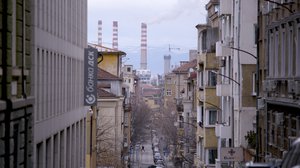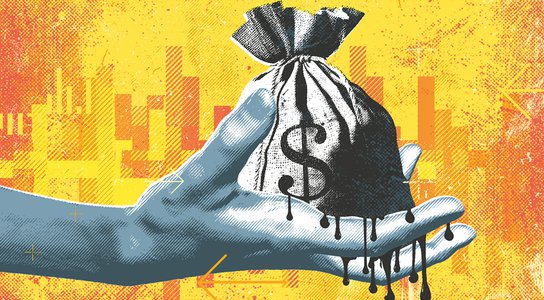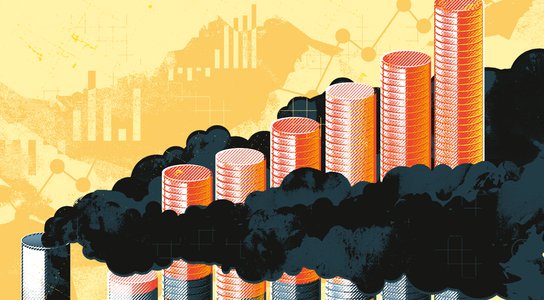When Russia invaded Ukraine, Western nations scrambled to disentangle themselves from a decades-long energy dependency which left them funding the aggressor in a war they condemned. Now, in turning to Azerbaijan for gas, the EU is repeating historic mistakes that will fuel further regional conflict and threaten European energy security.
Today, Patrick Pouyanné, the Chairman and CEO of TotalEnergies, will testify before the French Senate about the distance between his company’s business and French foreign policy. The hearing should serve as a reminder of the perils of shortsighted energy policies that weaken Europe’s long term national and energy security interests.
The conditions that led to Russia’s full-scale invasion of Ukraine did not develop overnight. Russia’s status as a fossil fuel superpower was built over decades by Western majors like Total through the technological and financial investments which they made there.
Now, with no consideration for the lessons of the last two years, the European Union has committed to doubling its imports of gas from Azerbaijan by 2027, a contract that earned Baku 15.6 billion Euros in 2022 alone. With the EU’s blessing, Total is funding another authoritarian regime through its investments in gas infrastructure there.
By increasing dependence on another authoritarian nation that systematically violates human rights and international norms, Europe is lending the dictatorial regime of President Ilham Aliyev money and legitimacy that will embolden it to pursue further military incursions into Armenia.
The EU is being doubly short-sighted in its pursuit of supplementing Russian gas with gas from Azerbaijan. The Caspian petrostate is helping to fulfil Europe’s gas demands by increasing its imports of Russian gas, indirectly sending funds to the Kremlin anyway.

A power plant powered by fossil fuels, situated in Sofia, Bulgaria. The European Union has committed to doubling its imports of gas from Azerbaijan by 2027. Photo: Damian Vodenitcharov
While Europe brushes this uncomfortable reality under the rug, others are paying with their lives for calling attention to it. Last year Dr. Gubad Ibadoghlu, a renowned political economist who is known for his criticism of the fossil fuel industry that underpins Azerbaijan’s corrupt government was arrested and badly beaten. Having been jailed in harsh conditions on spurious charges and denied medicine for months, he awaits trial, facing the possibility of years in prison.
Increasingly, Total’s Azeri investments stand in contradiction to the French government’s diplomatic position. Relations between the two countries have rapidly deteriorated over the last two years due to France’s staunch support for Armenia, to the extent that Aliyev’s regime expelled two French diplomats from the country.
Europe – and Total – have been here before. For years European governments ignored Putin’s rising authoritarianism and expansionist aims by allowing oil majors to pursue economic interests in Russia unchecked. Russia’s 2014 annexation of Crimea was as clear a sign as any that Putin had fully departed from international norms. The French government did condemn the annexation and Europe imposed sanctions on the export to Russia of certain oil and gas technology.
Yet just a few months later, in a meeting with Vladimir Putin, Pouyanné said “Total is a private company, but it is also one of the biggest French companies and so in some respects could be said to represent the country. You can count on me to do what I can to influence relations between our countries. I will do all within my power.”
Evidently that power was significant – in mid-2015, Total, which had called for sanctions to be lifted, was celebrating as its Termokarstovoye gas field in northern Siberia began producing. A few years later, in May 2018 French president Emmanuel Macron and Putin witnessed the signing of Total’s agreement to buy 10% of the massive Siberian gas project Arctic LNG 2.
We have seen over the last two years the consequences of those investments that built Putin’s power and bound Europe’s energy security to a hostile authoritarian state. Yet already Europe is repeating the same pattern in its relations with Azerbaijan.
In September 2023, Azerbaijan’s military offensive in Nagorno-Karabakh resulted in over 100,000 Armenians fleeing their homes. The assault came after a monthslong blockade that left residents without access to essential goods and was condemned by the European Parliament as an act of ethnic cleansing.
Three weeks before the attack on Nagorno-Karabakh, Pouyanné met with President Aliyev in Baku for the inauguration ceremony of the Absheron gas field, estimated to contain 350 billion cubic metres of gas, along with more than 45 million tonnes of gas condensate.
Just like the annexation of Crimea, the act of military force by Azerbaijan should serve as writing on the wall of what is to come. So should the increasingly genocidal rhetoric coming from Aliyev’s regime. Despite it all, this February, President of the European Council Charles Michel congratulated President Ilham Aliyev on his (undemocratic) re-election.
It is up to the French government to ensure that Total does not present Europe with geopolitical vulnerabilities and that its business model does not fuel conflict and human rights abuses around the world. Europe and France should take the lessons of the last two years as a sign to divest from fossil extraction in hostile authoritarian nations and instead invest in domestic renewable energy, which is cheaper, safer, and does not fan the flames of war and conflict.
Author
-
Mai Rosner
Senior Campaigner, Fossil Fuels


